Beijing’s increasing belligerence toward Taiwan voids the “one China” policy and prior arms sales limitations, which should be increased to maintain the military balance and keep the peace.
With this American red line on Taiwan, new or old, now becoming public, it should be abundantly clear that the main existing policies on Taiwan—constituted by a set of agreements with Beijing called the Three Communiques, along with the Six Assurances to Taiwan and the Taiwan Relations Act, all of which date from 1972 to 1982—need updating.
Since the early 1980s, China’s economy and military strength have increased by multiples, it committed the Tiananmen massacre, its domestic politics have become increasingly totalitarian and technologically sophisticated, it is a recognized genocidal actor against the Uyghurs, it violated agreements on Taiwan and Hong Kong, and it has moved aggressively to advance its claim to the entire South China Sea, the Senkaku Islands of Japan, and large parts of the Himalayas belonging to India.
U.S. policy that limited Taiwan’s sovereignty and arms sales, including its attempt to acquire a nuclear weapon in the 1980s, was all predicated on maintaining a balance of power between the two sides, and China’s peaceful approach to the issue of unification. Now the balance of power is shifting decidedly in favor of Beijing, and true to form, the Chinese Communist Party (CCP) is raising the risk of violent means to “resolve” the dispute in its favor.
“While I realize the concern that these positions may cause you, I would emphasize that any agreement we reach with Beijing will be predicated on a continuation of Beijing’s peaceful intentions toward Taiwan,” Eagleburger wrote. “We will not be guided simply by Beijing’s word in this matter. We will continue to monitor carefully, through various intelligence capabilities, Beijing’s military production and deployment. ... Any significant change in PRC [People’s Republic of China] actions in the direction of a more hostile stance toward Taiwan will invalidate any understanding we may reach with Beijing regarding our future arms sales to Taiwan.”
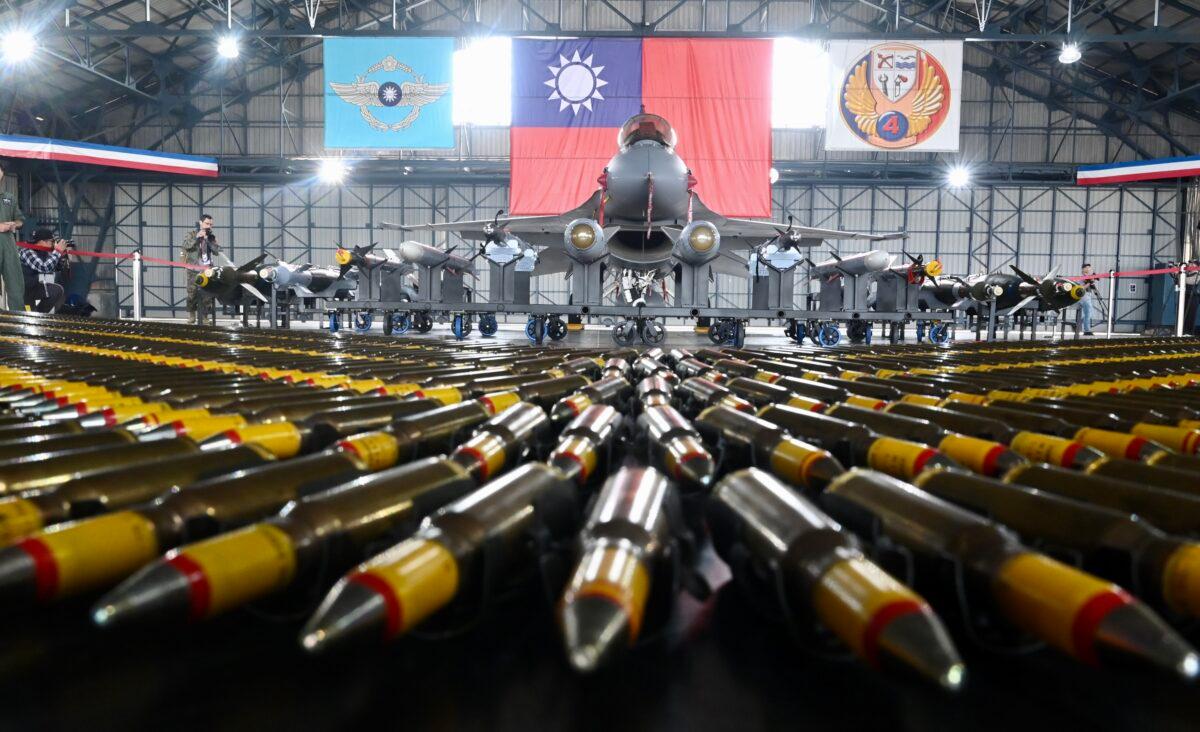
The Taiwan Relations Act
The Taiwan Relations Act, passed in 1979, is the sad product of a failed policy that optimistically and self-servingly (in a short-term way) accepted Beijing as America’s only official contact for both mainland China and Taiwan. Many U.S. allies followed.We reassured ourselves that communist China would eventually evolve into a liberal market democracy through engagement, trade, and China’s “reform and opening up,” which started in earnest after Mao Zedong’s death in 1976.
Xi’s policies make clear that America’s engagement strategy failed, especially in that it created a much stronger and more totalitarian China than it began with. China has indeed reformed, but toward more totalitarianism. “Opening up” better describes the opening of foreign economies for Beijing’s exploitation, than the Chinese economy for foreign business.
China remains closed to most international businesses, and those that do operate in the country must comply with CCP mandates, laws, and arbitrary directions in order to succeed. But that success is limited by the ready introduction of Chinese competitors if foreign profits get too high.
The Act states that it is U.S. policy that “the United States decision to establish diplomatic relations with the People’s Republic of China rests upon the expectation that the future of Taiwan will be determined by peaceful means … to consider any effort to determine the future of Taiwan by other than peaceful means, including by boycotts or embargoes, a threat to the peace and security of the Western Pacific area and of grave concern to the United States … to provide Taiwan with arms of a defensive character; and to maintain the capacity of the United States to resist any resort to force or other forms of coercion that would jeopardize the security, or the social or economic system, of the people on Taiwan.”
The Act served as a framework for U.S.-China relations after 1979, and ensured that America could continue to sell Taiwan arms at market prices, which balances against Beijing’s growing power, all the while increasing lucrative trade with China.
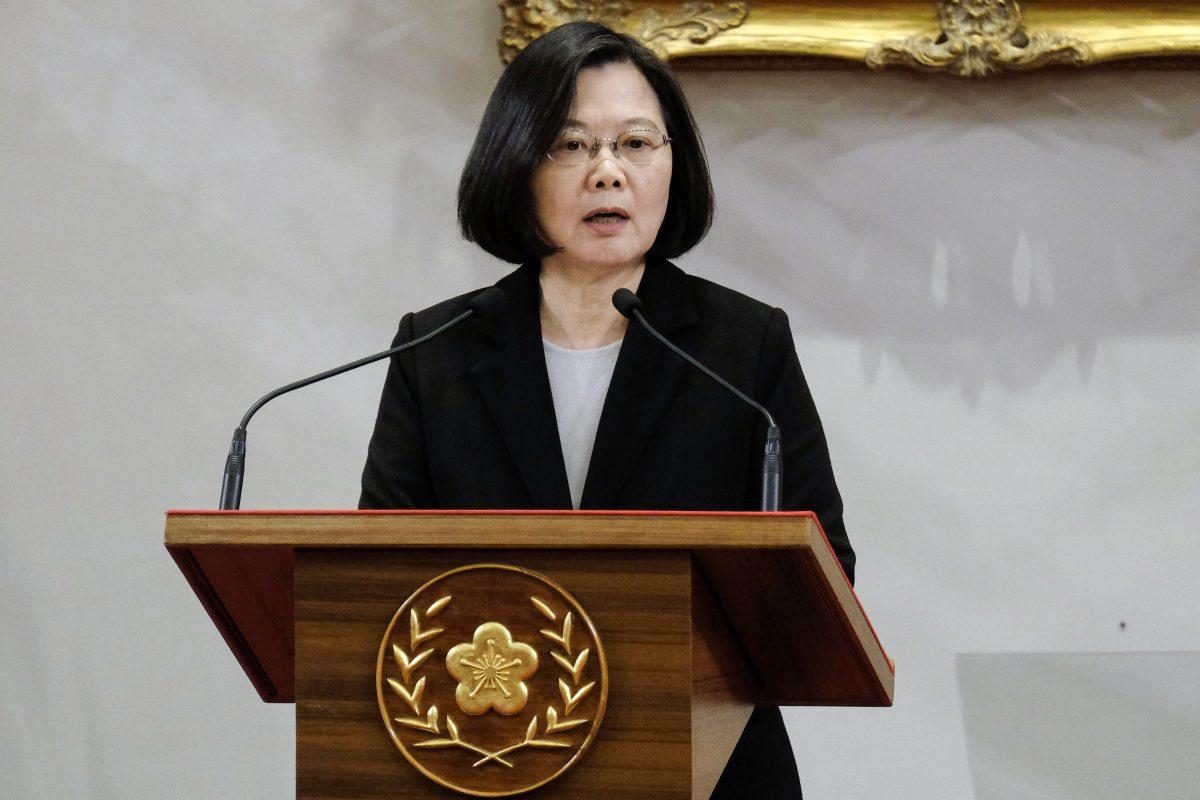
The Three Communiques
The Three Communiques were agreed between the United States and China in 1972, 1979, and 1982, and show the disconcerting marks of an American coddling of aggressive communist intentions toward Taiwan. We did so most likely to grease the skids of trade and other contact with China, through which we hoped the country would reform politically and economically.“By the end of February, the South Vietnamese northern flank was collapsing, the southern flank was under intense enemy pressure, and the column along Route 9 was effectively stalled and under heavy attack,” according to historian James Willbanks. “General Sutherland reported the developing situation to General Abrams, saying, ‘The enemy is all over that goddamn area, and seems to be getting stronger, if anything.’”
The operation failed, in part because of President Richard Nixon’s strategy of Vietnamization and because the Cooper-Church Amendment of 1970 disallowed U.S. ground troops to accompany South Vietnamese troops across the border.
Meanwhile, the November 1972 presidential election was looming. Desperate for any win on the international stage, and for Chinese assistance in assuring an honorable retreat from Vietnam, Nixon was over a barrel in the negotiations with Beijing.
The Shanghai Communique that resulted has the feel of capitulation. It included mutual recognition of territorial integrity and non-interference in internal affairs. The United States acknowledged that both Beijing and Taipei consider all of China, including Taiwan, as one, and that as tensions diminished, U.S. forces would be withdrawn from the island. Both sides agreed not to seek regional hegemony or spheres of influence, where the United States had something of the sort in much of Asia after World War II and had a chance at it on a global level. Beijing had no opportunity at global hegemony in 1972, but it does now.
Exchanges in trade, science, technology, culture, sports, and journalism would be facilitated between the two countries. This was particularly valuable to China, which was far behind the West in science and technology. The United States did in fact withdraw military forces from Taiwan, after which Beijing continued to threaten Taiwan with military invasion. The United States only this year acknowledged publicly that it has limited training forces in Taiwan.
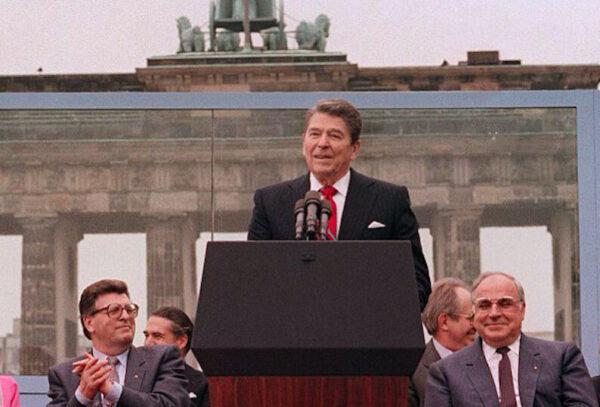
The same day as the communique, Reagan issued a memorandum stating: “The U.S. willingness to reduce its arms sales to Taiwan is conditioned absolutely upon the continued commitment of China to the peaceful solution of the Taiwan-PRC differences. It should be clearly understood that the linkage between these two matters is a permanent imperative of U.S. foreign policy. In addition, it is essential that the quality and quantity of the arms provided Taiwan be conditioned entirely on the threat posed by the PRC. Both in quantitative and qualitative terms, Taiwan’s defense capability relative to that of the PRC will be maintained.”
Up or Out: US Policy on Taiwan Must Strengthen or Beijing will Continue to Trend Toward Hegemony in Asia
As the CCP’s growing power and threatening behavior became manifest to most of the American public during the COVID-19 pandemic, which has already cost 4.9 million deaths globally, Biden toughened his stance toward Beijing. While Chinese authorities were busy covering up the outbreak in Wuhan, Taiwan brought COVID-19 to public attention. Increased appreciation for Taiwan followed.Of all these countries, Taiwan alone has no defense treaty with the United States in case of attack. So Biden’s inclusion of Taiwan in the list was doubly significant.
After his Oct. 21 statement, Taiwan’s foreign ministry thanked Biden for the “U.S. long-time promise to Taiwan,” indicating that there could in fact be a non-public promise to defend the country from a mainland attack.
Taiwan’s involvement in these organizations is a step forward in the recognition of its sovereignty. As Taiwan is brought back, the Three Communiques and Taiwan Relations Act, which are predicated on Taiwan’s lack of sovereignty, must be revisited.
According to Professor James Kraska, who holds dual appointments at Harvard Law School and the U.S. Naval War College, it is time to discard the Three Communiques that underlie U.S.-China relations on the issue of Taiwan.
“The U.S. policy is based on the Taiwan Relations Act as well as the Three Communiques,” Kraska wrote in an email. “The United States should scrap the communiques, as China has not complied with them.”
The Act, too, is based on the underlying assumption that Beijing would never attempt to force Taiwan’s unification with the mainland, by annexation or otherwise. The Chinese military’s almost daily and increasing flights near the island, including nuclear-capable bombers, and its multiple training exercises with amphibious landing ships, make clear that Beijing is attempting the coercion of Taiwan into unification by increasing the risk of a highly destructive war.
What was a flawed Taiwan Relations Act to begin with is therefore outdated. At minimum, it has needed as a complement the occasional presidential hint to Beijing that the United States still sees Taiwan as a legitimate if unofficial diplomatic partner, and the United States will defend the island militarily (which implies that it is a sovereign). But these are stopgap measures. The Act needs a thorough overhaul.
China’s violation of the understanding that undergirds the Act now makes America’s recognition of China, rather than Taiwan, a one-sided bargain. America established diplomatic recognition of China only with the understanding that China would pursue its claim to Taiwan through strictly peaceful means. China’s promise is now broken, as is its 1984 promise to Britain to leave Hong Kong’s unique political autonomy and freedoms intact.
The logical imperative is shocking but inescapable: Diplomatic recognition of communist China should be withdrawn. In its place, Taiwan should be championed by the international community, including through full diplomatic recognition, a formal apology for the derecognition of 1971, full admittance to the United Nations, and sufficient military support to ensure its survival even if communist China attempts an invasion. The Taiwan Relations Act should be amended to reflect these new realities and policies.
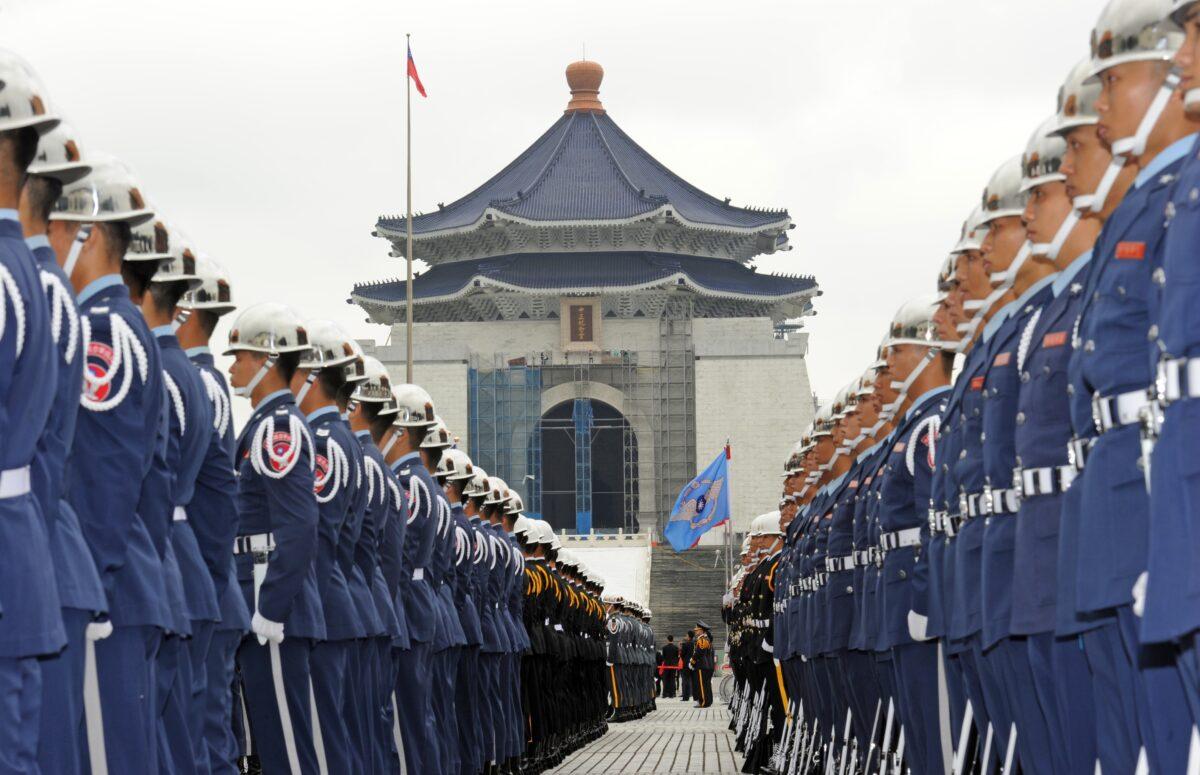
American legislation, international agreements, and policy on Taiwan from 50 years ago need a thorough revision to stop Beijing from making history’s biggest mistake, the invasion of Taiwan.
First, Taiwan should invite the United States to put a military base on the island as a temporary defense against the Chinese military.
Second, Washington should pass legislation preauthorizing the president to militarily defend Taiwan in case of a Chinese attack. This will put Beijing on notice that any attack on Taiwan, is an attack on America.
Third, the Taiwan Relations Act should be revised to make it U.S. policy to encourage the diplomatic recognition of Taiwan by other countries and the U.N., including through preferential trade access and development funding reserved for those countries that give official diplomatic recognition to the island democracy.
Fourth, we should publicly recognize that the Three Communiques are void due to Beijing’s increasing military belligerence toward Taiwan. Serious consideration should be given to derecognizing communist China as a legitimate state, from which economic decoupling is an ethical and strategic imperative.
No less is required to protect the Chinese people’s only democracy, which is a canary in a coal mine for the rest of the world’s democracies. If Taiwan goes, what is to stop a progression of other democratic countries falling to Beijing? If we are to defend them when we are weaker due to the loss of Taiwan, all the better to defend Taiwan now, while that defense still makes us stronger.
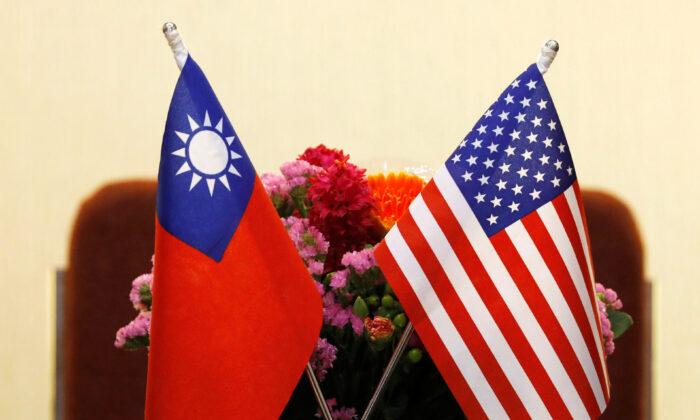

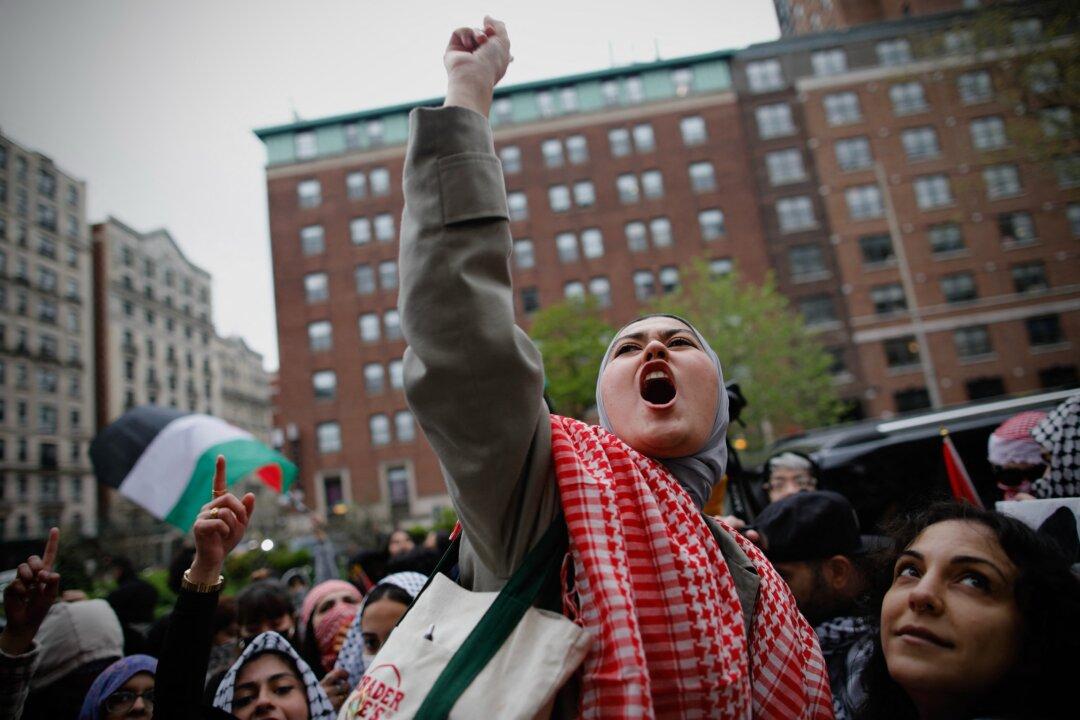
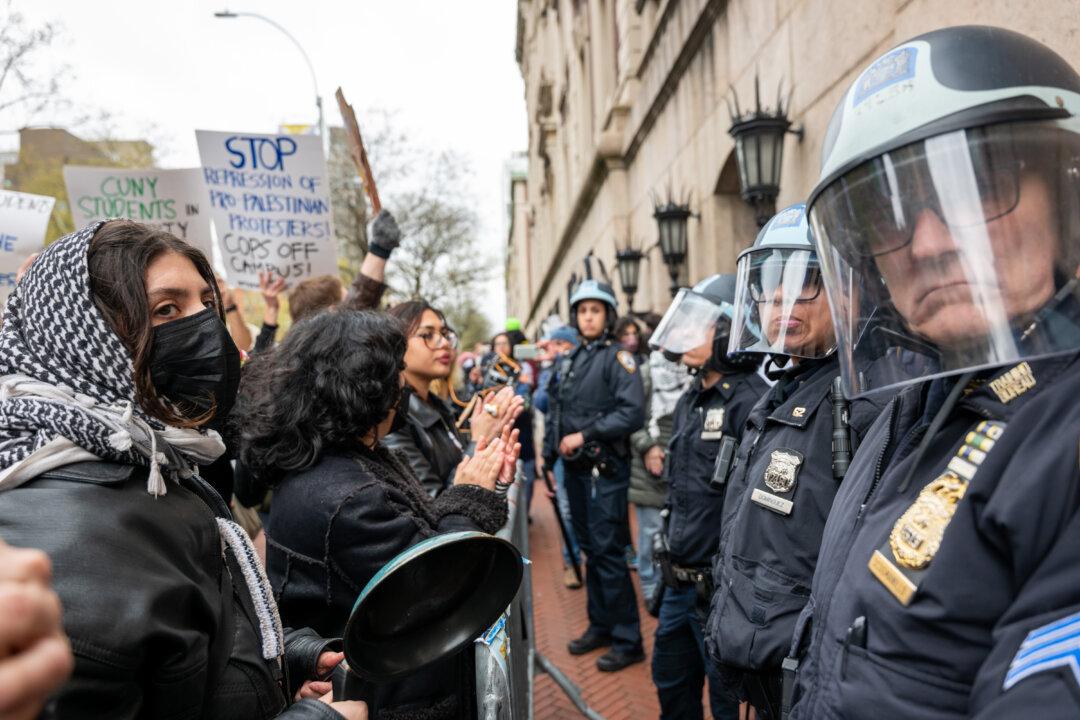

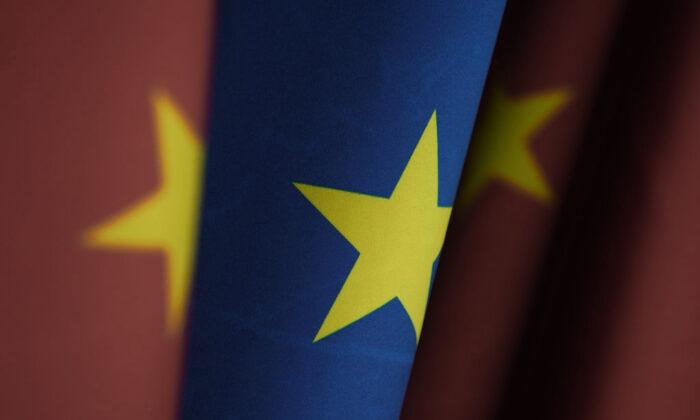
Friends Read Free